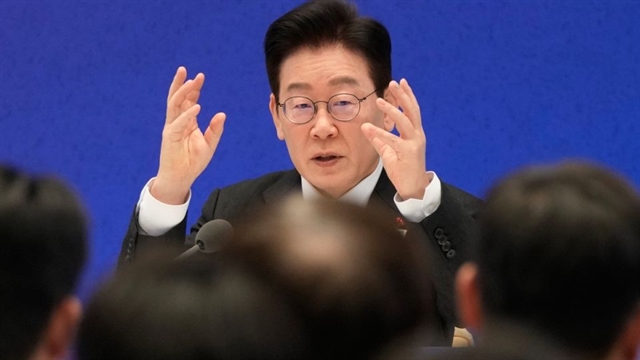 World
World

DUBLIN — A draft deal to revive Northern Ireland's defunct government was published on Thursday, three years to the day since the province's executive collapsed in acrimony.
The document throws down the gauntlet to the region's parties ahead of a Monday deadline which will see an election called if no deal is agreed.
"I think we have a document, which hopefully for all of them, will make them think carefully about coming back in," British secretary of state for Northern Ireland Julian Smith told broadcaster RTE.
"The prize, if each of them takes that leap, is that they can all take responsibility for the first period of this new decade to move things on."
Smith said he had written to the speaker of the Belfast Assembly at Stormont, asking him to call representatives to return to the chamber Friday and allow the restoration of the executive.
Democratic Unionist Party (DUP) leader Arlene Foster -- whose party must agree to the deal if an executive is to be formed -- gave tentative backing to the draft.
"On balance we believe there is a basis upon which the Assembly and Executive can re-established in a fair and balanced way," she said in a statement.
"This is not a perfect deal and there are elements within it which we recognise are the product of long negotiations and represent compromise outcomes. There will always need to be give and take."
Mary Lou McDonald, the leader of the second key party Sinn Fein, said Thursday night they would "meet tomorrow to fully assess" the paper, promising to give it "careful consideration".
The devolved government at Stormont collapsed after a financial scandal boiled over into wider disputes between the pro-British DUP and republican party Sinn Fein.
Under the terms of a 1998 peace accord which brought stability to the region the two parties must share power.
Since Sinn Fein pulled out of the executive in January 2017 the territory has been managed by its civil service, without ministerial direction.
Negotiations to revive Stormont have been snagged on disagreements over the provision for Irish language in the province and a controversial mechanism which gave minority movements the power to veto legislation.
But in recent weeks pressure to resolve the disputes has grown.
Nurses have taken strike action over pay and unsafe levels of staffing -- issues which cannot be remedied without an executive.
And Smith has said an election will be called if the executive is not reformed by Monday as legislation allowing the civil service to run the region will expire.
The draft deal was released jointly by Smith and Ireland's foreign minister Simon Coveney, reflecting the Republic's role as co-guarantor of the 1998 Good Friday Agreement which ended the region's 30-year conflict known as "The Troubles".
"There is no need, and no public patience, for more process and more discussions," Coveney said in a statement.
"It is time for political leadership and a collective commitment to making politics work for people." — AFP